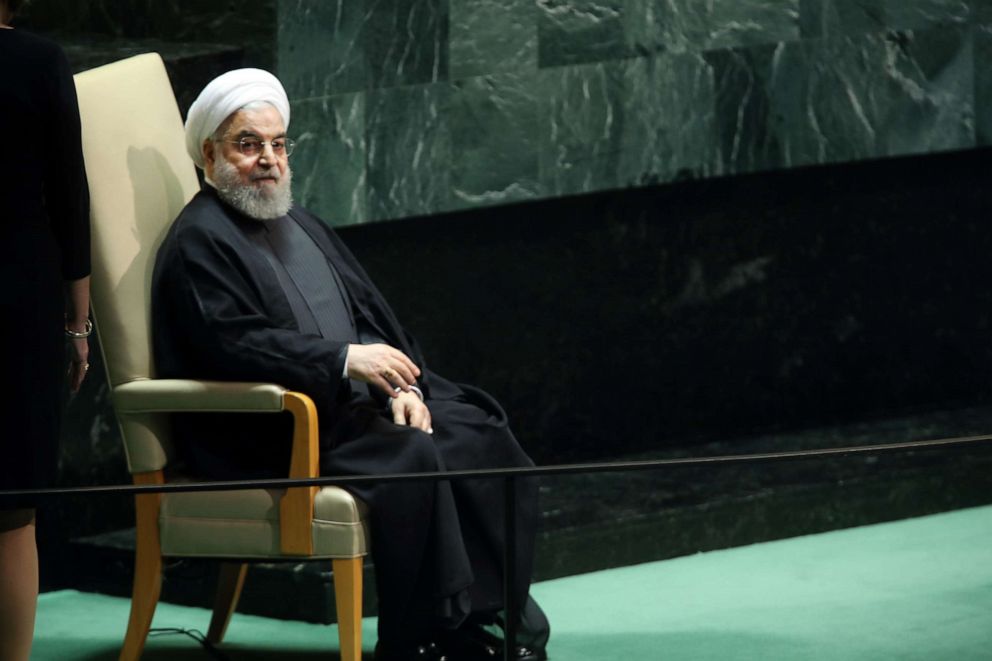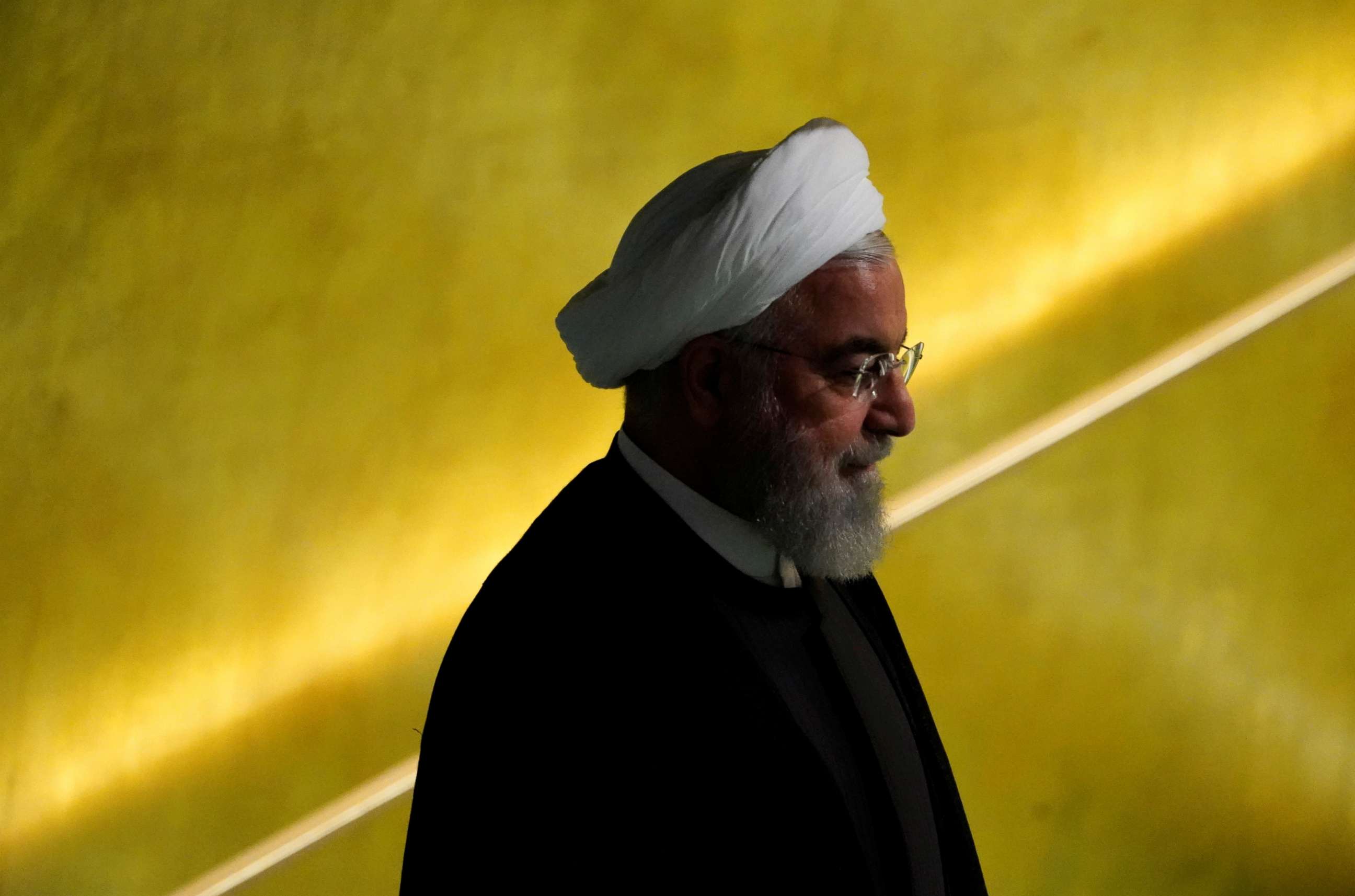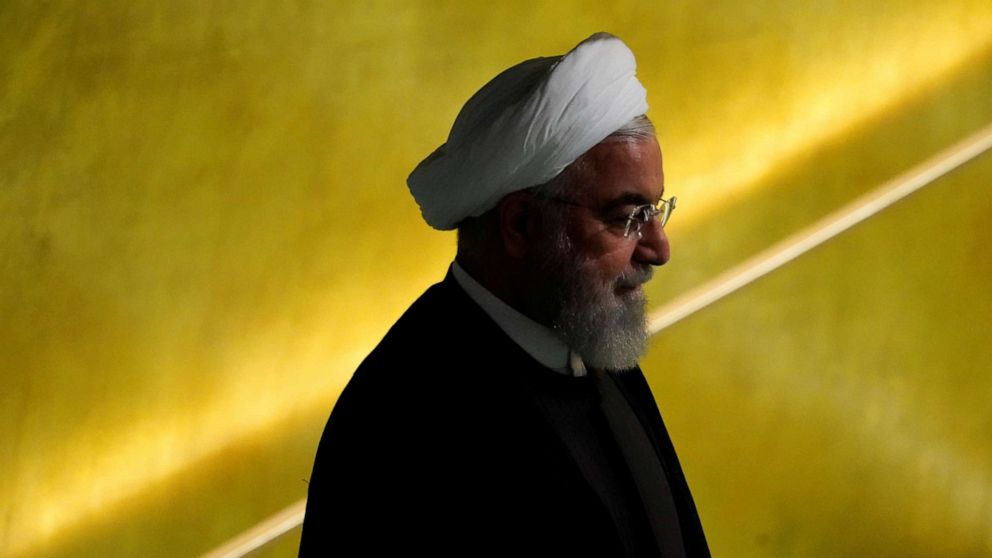World leaders made last-minute push to get Trump to meet with Iranian President Hassan Rouhani
Just hours before Iranian President Hassan Rouhani delivered an ultimatum that he would not meet with President Donald Trump without relief from sanctions, there was a strong push to get the two world leaders together on Tuesday, according to a senior European diplomat -- a sign of how fluid things can be at the U.N. General Assembly.
According to the diplomat who was involved in these efforts, European leaders who met with Trump Tuesday -- French President Emmanuel Macron, German Chancellor Angela Merkel and British Prime Minister Boris Johnson -- each advocated for new negotiations with Iran to lengthen its commitments under the nuclear deal and address its ballistic missile program and regional activity.
After Macron and Trump huddled at the Palace Hotel, the French president met with Rouhani -- at least his second time in 24 hours. He pressed Rouhani and told him it's "now time for them to move if they want to go forward, to have less sanctions and go for a deal," the diplomat told ABC News.
But "they were not ready to go for this sort of meeting," the diplomat said of Iran.

Rouhani reiterated in his U.N. address Wednesday that Iran will only meet once the U.S. starts to lift sanctions.
Later in an interview with ABC News anchor David Muir, Rouhani implied he turned down the chance to talk to Trump, adding, “America says that it will put Iran under maximum pressure until we talk and negotiate. ... America must do away with that precondition, take away all of the sanctions and maximum pressure, and wish to conduct talks.”
These opposing ultimatums have left any diplomatic effort still deadlocked.
"The real issue is sequencing," the diplomat said. "They can't be reconciled if there is not a willingness to act and to make some decision, a political decision to go further."
When asked if the U.S. seemed open to easing some sanctions first, the diplomat said, "It depends on who you speak to," noting Trump has already voiced a desire for dialogue.

But his top advisers, like Secretary of State Mike Pompeo, have pushed to keep "maximum pressure" in place, condemning any effort at mediation that involves providing economic relief to Iran.
“There are still those today who think, ‘Boy, if we just give Iran just a little bit more money, they’ll become a peaceful nation.’ We can see that that does not work,” Pompeo said last Thursday in Abu Dhabi.
That's illogical, according to European officials: "You will not get a deal, a better or broader deal, than the JCPOA if you don't also have something in terms of economic benefits -- it's obvious," the diplomat said.
Both sides want the other to act first because there's so little trust.
As Rouhani told the U.N. Wednesday, "We cannot believe the invitation to negotiation of people who claim to have applied the harshest sanctions of history against" Iran.
Still, European officials remain undeterred.
"This is not a final push ... it's the only way to go forward if we're to avoid escalation and find a settlement," said the diplomat.




